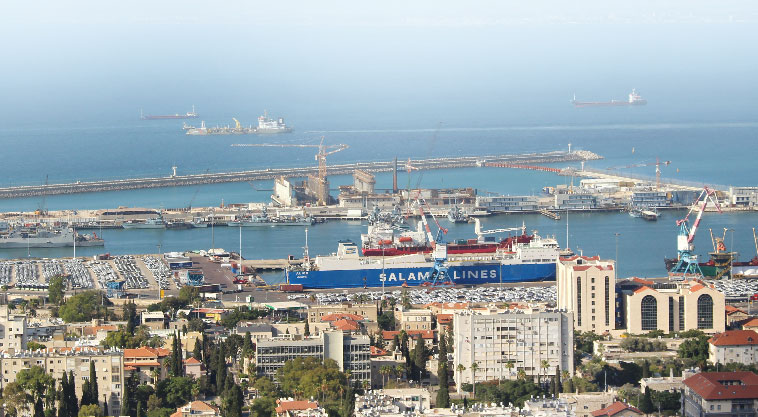Between a Rock and a Hard Place


Israel is feeling the heat of the battle of the superpowers, to the point where even a medium-sized infrastructure project, such as outsourcing management of the Port of Haifa, has become a game on the chessboard of US-China relations.
In this case, the US is displeased with Israel’s decision to sign a contract with Shanghai International Port Group (SIPG) that will allow the Chinese company to begin managing the port in 2021.
For the US, the Chinese operating a port in Israel is a flashing red light. The US-China conflict involves more than just trade. The United States also regards China as a prime defense threat.
For the Pentagon, the Haifa port in the hands of a Chinese company is a nightmare scenario that will discourage the US Navy from docking there, as it does periodically. The decision also threatens to have major repercussions on defense and political ties between Washington and Jerusalem.
During his visit to Israel last week, US national security advisor John Bolton once again raised the issue, and Israel now understands that it must do something to avoid appearing ungrateful to the United States.
The Israeli government has established a joint team that includes representatives from the National Security Council and the ministries of Defense and Treasury, to formulate an official policy on “foreign investments” in Israel. A source familiar with the development told Mishpacha that the formation of the team has less to do with great power tensions between China and the United States and more to do with a general policy review requested by Israel’s Security Cabinet.
Members of Israel’s defense and financial establishments don’t view the threat through the same lens. The defense establishment fears the Chinese projects could be cover for espionage, and may harm relations with the United States, Israel’s greatest ally. Finance Ministry officials, on the other hand, maintain that a robust economy contributes to the country’s defense stance, and that increased supervision of the Chinese could send investors fleeing.
Either way, Israel is working overtime to come up with a way to make everybody happy. Washington would like nothing more than to see the contract null and void. But Israel still recalls the Chinese rage in 2000, following the cancelation of a deal to sell China the Israeli-made Phalcon early-warning radar system, the result of American pressure on then-prime minister Ehud Barak.
At the time, Israel had to endure tense ties with the Chinese while coughing up compensation to the tune of $350 million. Israel doesn’t want to make the same mistake twice.
(Originally featured in Mishpacha, Issue 744)
Oops! We could not locate your form.













